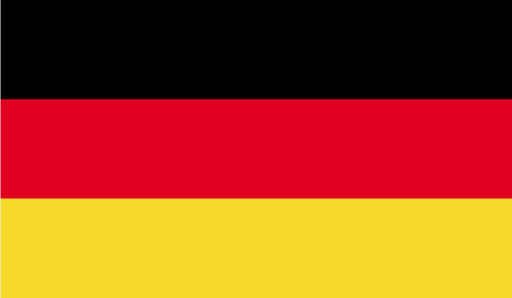Ġermanja
Blogs minn: Ġermanja
Skip results of view Country Insight Blogs
Bħalissa m’hemm l-ebda artiklu tal-Blog
Use cases in: Ġermanja
Skip results of view Use cases
The transformation to the bicycle city Berlin is presented on the FixMyBerlin platform in an understandable and comprehensible way on maps. FixMyBerlin coordinates with the districts and the Senate Administration and shows infrastructure developments by subdividing it in four categories concept, planning, under construction and finished. The Happy Bike Index shows where you can cycle safely and where it is still dangerous.
The transformation to the bicycle city Berlin is presented on the FixMyBerlin platform in an understandable and comprehensible way on maps. FixMyBerlin coordinates with the districts and the Senate Administration and shows infrastructure developments by subdividing it in four categories concept, planning, under construction and finished. The Happy Bike Index shows where you can cycle safely and where it is still dangerous.
Giess den Kiez (Pour the Neighborhood) is a Berlin-centred platform that aims to tackle the issue of arid and hot summers causing trees to dry and suffer long-term damage by encouraging citizens to adopt a tree and water it. The project is a coordinated effort to irrigate urban areas and enable citizen participation. On a map overview, dots represent trees, and a color-coding scheme indicates their water requirements.
Rapporti fi: Ġermanja
Skip results of view Dokumentazzjoni

Study
Data sharing as a service: will data services remove intellectual property rights from the picture, and at what cost?

Download
Avvenimenti ta’ Data Miftuħa fi: Ġermanja

Register now for our upcoming webinar, ‘ Unlocking data interoperability: exploring ways of standardisation with real use cases ’, on Friday, 25 April 2025, from 10:00 to 11:30 CEST. Join...
Open Data News in: Ġermanja
Skip results of view L-Aħħar Aħbarijiet tad-Data Miftuħa





Germany’s GovData portal , the national platform for open government data, continues to set benchmarks in data accessibility and transparency. Launched in 2013, GovData provides a centralised point for administrative data from federal, state, and local governments, making it easier for citizens, businesses, and researchers to access and use public data. The portal hosts a large collection of datasets, covering diverse categories such as health, traffic, environment, and science and technology. With over 120,000 datasets available as of September 2024, GovData ensures that users can find

On Friday 16 February 2024, from 10.00 to 11.30 CET, the data.europa academy hosted the webinar ‘Open data maturity 2023: best practices across Europe‘ which highlighted Slovakia's and Serbia's accomplishments in the field of open data. With nearly 600 registrants, the event underscored the growing interest and commitment to open data across the continent. An expert from data.europa.eu initiated the session by presenting the ODM results , setting the stage for in-depth country analyses. Following this introduction, the narrative shifted to Serbia . In just two years, Serbia demonstrated

On 1 March 2024 , from 10:00 to 11:00 CET , our webinar on "New b usiness m odels for d ata- d riven s ervices" is set to provide fresh insights into the utilisation of open data. Th e event, building on the data.europa.eu discussion paper , aims to explore how public sector information, when made available as open data, can be purposefully re-used to creat e value for both public and private sectors . In recent years, the focus on open data has shifted towards understanding and meeting end-user needs. Th e webinar will examine the potential of open data in Europe, exploring how it can drive

This year marks the fifth anniversary of RescEU, an initiative by the European Commission that has strengthened disaster response mechanisms across Europe. Established to extend the EU Civil Protection Mechanism, RescEU embodies a deep commitment to protecting citizens from diverse disasters and managing emerging risks effectively. Since its launch in 2019, RescEU has served as a robust reserve of European capacities, fully funded by the EU. This includes a fleet of firefighting aircraft, medical evacuation planes, and critical medical supplies and field hospitals, ready to tackle health



